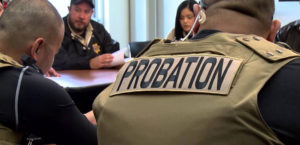Persons convicted of sex crimes against children are often required to stay away from parks and playgrounds as part of their sentence. Someone in California who is convicted of drunk driving could be ordered to stay away from liquor stores. So, is it unconstitutional to order a man convicted of stealing from Home Depot to stay away from any Home Depot store?
If you are convicted of a crime and placed on probation, you will likely to have to follow many conditions that are related to your crime. But can a judge place any probation conditions on you that he or she pleases? When are probation conditions illegal?
Explaining How California Probation Works
Probation is a type of punishment for a crime in California that allows you to serve your sentence without being held in custody in jail or prison. You will be released back into the community, but only with the expectation that you follow certain terms and conditions. If you fail to follow any of these conditions or appear at any scheduled court hearing, you are considered in violation of your probation and this could lead to you being sent to jail.
Under California Penal Code Section 1203, judges have wide discretion when determining the terms of your probation. Judges can issue any term or condition of your probation as long as it relates in some way to the crime you committed.
Probation Condition Banning Man from Entering All Home Depot Stores Upheld
The California Supreme Court recently upheld a probation condition that banned a man who was convicted of shoplifting from entering any Home Depot store and adjacent parking lots. The man plead no contest to second degree burglary of $128 worth of merchandise from a Home Depot store, but appealed the probation term preventing him from going to any Home Depot stores and parking lots.
According to the state Supreme Court, the condition “was reasonably related to his crime and to preventing future criminality.” Furthermore, the court reasoned that the probation condition barring the man from entering any Home Depot did not implicate his right to travel. Therefore, the court ruled the probation condition was constitutional.
This ruling shows the power that judges have when making probation terms and also shows that you should consider all options before you agree to probation. However, if you think any of the terms of your probation violate your rights, you may be able to challenge those terms.
What Happens if You Violate Probation?
If you violate any of the terms or conditions of your probation, you face severe punishment. A judge can decide to:
- Revoke and reinstate probation and impose a jail sentence
- Revoke probation and impose the sentence for the original crime
- Extend the length of your probation
- Impose additional probation conditions
- Order counseling
- Order a substance abuse treatment program
If you are accused of violating any of the terms of your probation, you should contact a criminal defense attorney immediately.
Contact the Probation Violation Lawyers at Wallin & Klarich Today
If you are accused of violating probation, you face severe consequences. That is why you need to talk to a skilled and knowledgeable attorney immediately. An attorney can represent you at a probation violation hearing and argue that you did not violate your probation, or that you should not go to jail for violating your probation. An experienced lawyer may also be able to challenge a condition of your probation if you believe it violates your rights.
With offices in Orange County, Riverside, San Bernardino, Los Angeles, West Covina, Torrance, Victorville, and San Diego, our experienced lawyers at Wallin & Klarich are available to help you with probation matters no matter where you work or live.
Contact our offices today at (888) 280-6839 for a free phone consultation. We will get through this together.



